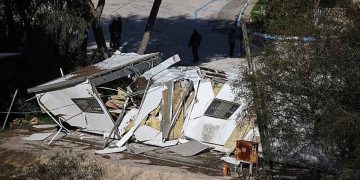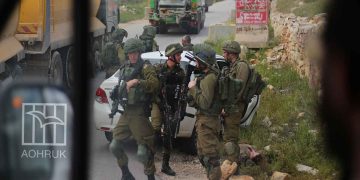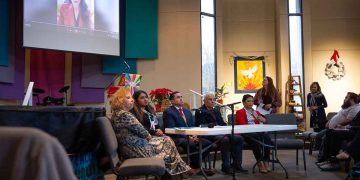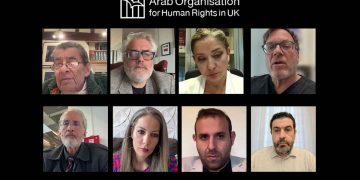Egypt’s Supreme State Security Prosecution has referred journalist Khaled Mamdouh to criminal trial on charges that mirror a recurring pattern in the authorities’ handling of independent voices in charges framed in broad, malleable terms and cases fabricated to silence any opinion that diverges from the official narrative.
Mamdouh is accused of “joining a terrorist group,” “financing a terrorist group,” and “spreading false news”, the same set of allegations now routinely deployed as ready-made templates against critics, journalists, and human rights defenders.
Security forces had arrested Mamdouh from his home in Cairo’s Mokattam district at dawn on 16 July 2024, without presenting a warrant or informing his family of the authority behind the arrest. He was then disappeared for an entire week in a practice that has become commonplace to subject detainees to interrogation in complete isolation from legal or judicial oversight. After he reappeared before the State Security Prosecution, he was placed in Case No. 1282 of 2024.
The Egyptian Journalists’ Syndicate had formally requested that the Public Prosecutor disclose Mamdouh’s place of detention during the period he was forcibly disappeared, following a complaint submitted by his family confirming that the arrest was carried out at dawn and in an arbitrary manner.
The Syndicate’s Freedoms Committee noted that Mamdouh serves as Managing Editor at MBC Masr and has a long professional record, with no political or partisan affiliations rendering the terrorism charges against him yet another manifestation of the state’s practice of turning journalism itself into a “crime” warranting prosecution. The committee demanded that his family and lawyer be granted immediate access to him, after he remained detained for weeks without any guarantees of his basic rights.
Mamdouh’s case reflects a systemic flaw within Egypt’s justice apparatus, where terrorism-related provisions and the offence of “spreading false news” are wielded as legal weapons to criminalise journalism. These laws, drafted in vague and elastic terms, allow the extension of pretrial detention, the opening of cases with no material evidence, and persistent violations of fair-trial standards.
His arrest, carried out through a dawn raid, followed by an enforced disappearance, and then his placement in a State Security case illustrates the existence of an entire structure through which political contention is managed by security and judicial bodies rather than by the law. It comes within a wider context of Egyptian authorities engineering pre-fabricated cases to eliminate critical voices, be they journalists, opposition figures, bloggers, or ordinary social-media users.
The referral of Khaled Mamdouh to trial marks yet another episode in a long chain of targeting journalists, exposing the authorities’ determination to turn journalism into a personal risk and to keep the media environment in a state of perpetual intimidation.
With the judiciary continuing to function as an instrument of political deterrence, Mamdouh’s fate, and that of many others, remains tied to security agencies that operate without oversight and show no intention of halting practices that undermine freedom of expression, personal safety, and the guarantees of a fair trial.



























